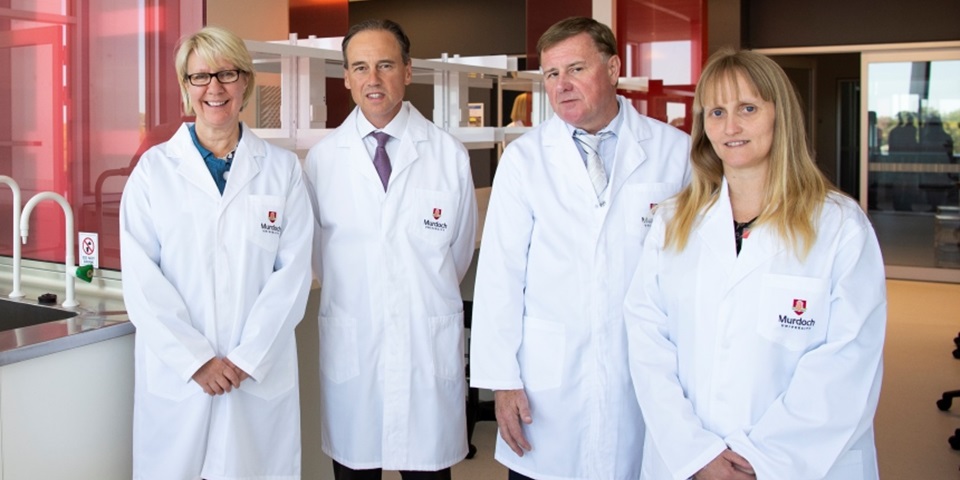News
Murdoch welcomes $10m phenome funding

Murdoch University today welcomed $10 million in Federal Government support for the Australian National Phenome Centre (ANPC) that will place Western Australia at the forefront of international precision medicine research.
Announcing the Federal funding at the new Murdoch ANPC laboratory, Minister for Health Greg Hunt said: "This will bring the best and the brightest to save lives, to protect lives. This will help to harness the power of technology and the brilliance of people like Professor Jeremy Nicholson and Professor Elaine Holmes (the leaders of the ANPC)."
Murdoch University Vice Chancellor Eeva Leinonen acknowledged the Federal support for this major WA-collaborative project as a significant investment into the future health of people in this State, Australians and millions more around the world.“This ground-breaking research will revolutionise the way in which many challenging diseases and health conditions are diagnosed, treated and prevented,” Professor Leinonen said.
“The ANPC will put WA and the nation on the global stage, pioneering research that will translate into transformational benefits across human health, animal health, agriculture and food.”
Professor Leinonen said Murdoch University was proud to be leading this major collaborative project made possible by ‘Team WA’ partners across universities, industry, government, hospitals and medical research institutions.
“We also look forward to working closely with the Federal and State Governments and our national and international partners as the ANPC leads Australian metabolic phenotyping research and promotes Australian scientific strength through global engagement.”
The ANPC will enable researchers to examine the complex interaction and influence of genes, the environment, diet and lifestyle on human health, helping them to better predict, prevent and treat complex diseases and conditions including obesity, diabetes, dementias and cancers.
The Centre’s technology will also be applied to deliver advances in personalised nutrition, unlocking links between the quality of food and health. Applications of significant benefit to the food industry extend to determining food quality, authenticity and provenance. Analysis of native plant species using phenomics, could reveal potential new medicines.
ANPC lead and Pro Vice Chancellor for Health Sciences at Murdoch University, Professor Jeremy Nicholson, said phenomics represented the next step in expanding the boundaries of our knowledge of human health and the causes and prevention of common disease.
“We anticipate the findings of the ANPC will have powerful applications in improving the health and lives of all Australians, particularly our children, future generations and Indigenous Australians,” Professor Nicholson said.
“Our emphasis is on practical solutions to major healthcare problems by being better informed about human risk diversity.”
Background
One of the most significant scientific research collaborations undertaken in Western Australia, the ANPC is a core platform of the Western Australian Health Translation Network (WAHTN), which brings together expertise from all WA universities, major hospitals, medical research institutes and partners. These include the Telethon Kids Institute, the Harry Perkins Institute of Medical Research, the Pawsey Supercomputing Centre in Perth and the EPICentre at the University of New South Wales.
Core facilities are based at the Harry Perkins Institute of Medical Research (South), with nodes located at Curtin University for data visualisation and Nuclear Magnetic Resonance Mass Spectroscopy capability at the University of Western Australia.
The Centre will aim to deliver comprehensive access to metabolic phenotyping/profiling for the benefit of the translational medicine community in Australia and will be connected with similar centres across the International Phenome Centre Network (IPCN), including centres in London, Birmingham, Hong Kong and Singapore.